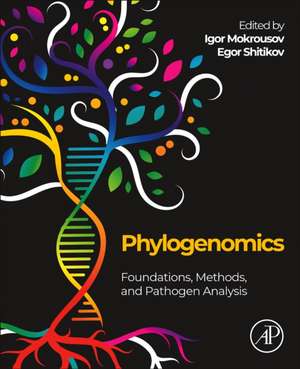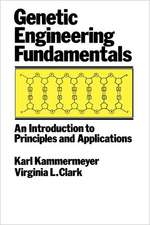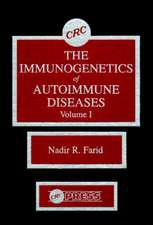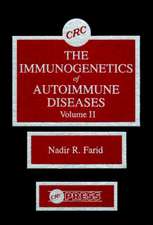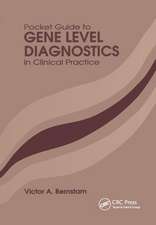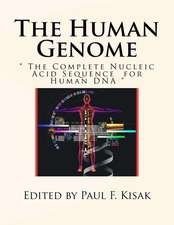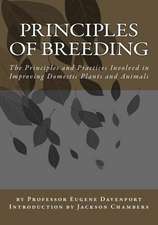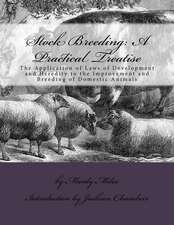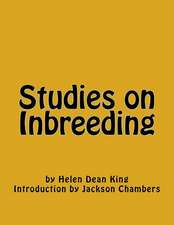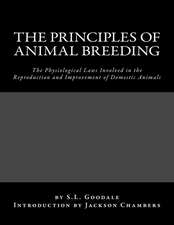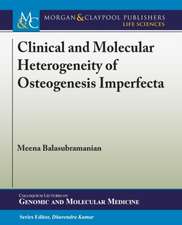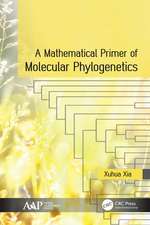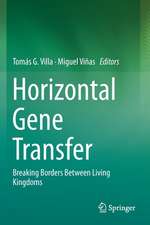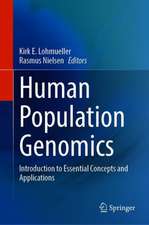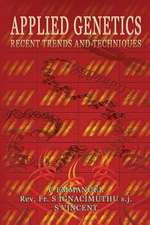Phylogenomics: Foundations, Methods, and Pathogen Analysis
Editat de Igor Mokrousov, Egor Shitikoven Limba Engleză Paperback – 20 mai 2024
- Offers a full overview of phylogenetics and phylogenomics, from its foundations to methods and specialized case studies
- Presents methodologies and algorithms for phylogenomic research studies and analyzes medically significant microorganisms
- Considers examples of phylogenomic analysis across a range of medically significant pathogens
- Includes chapter contributions from leading international experts
Preț: 795.65 lei
Preț vechi: 1031.47 lei
-23% Nou
Puncte Express: 1193
Preț estimativ în valută:
152.25€ • 165.90$ • 128.29£
152.25€ • 165.90$ • 128.29£
Carte tipărită la comandă
Livrare economică 16-30 aprilie
Preluare comenzi: 021 569.72.76
Specificații
ISBN-13: 9780323998864
ISBN-10: 0323998860
Pagini: 612
Ilustrații: 80 illustrations (40 in full color)
Dimensiuni: 191 x 235 mm
Greutate: 1.36 kg
Editura: ELSEVIER SCIENCE
ISBN-10: 0323998860
Pagini: 612
Ilustrații: 80 illustrations (40 in full color)
Dimensiuni: 191 x 235 mm
Greutate: 1.36 kg
Editura: ELSEVIER SCIENCE
Cuprins
PART I. GENERAL TOPICS AND FOUNDATIONS
1. Phylogenomic analysis and the origin and early evolution of viruses
2. Application of Next Generation Sequencing for Genetic and Phenotypic Studies of Bacteria
3. Genomic insight into deciphering bacterial outbreaks
4. Drug resistance in bacteria, molecular mechanisms and evolution
5. Virulence evolution of bacterial species
PART II. METHODS IN THE PHYLOGENOMICS
6. Modeling evolutionary changes of k-mer patterns of bacterial genomes
7. Clock Rates and Bayesian Evaluation of Temporal Signal
8. Microbial evolutionary reconstruction in the presence of mosaic sequences
9. Tools for SNP calling and the way to deal with big datasets
PART III. PHYLOGENOMICS OF SPECIFIC PATHOGENS
10. Phylogenomics of Yersinia pestis
11. Salmonella Phylogenomics
12. The phylogenomics of Shigella spp.
13. Phylogenomic diversity within Corynebacterium diphtheriae, a re-emerging threat to global public health
14. Phylogenomics of the East Asian lineage of Mycobacterium tuberculosis
15. Mycobacterium kansasii
16. Taxonomy and phylogenomics of Leptospira
17. Phylogenomics and evolution of Measles virus
18. Phylogenomics of HIV-1
19. Respiratory syncytial virus
20. Phylogenomics of Flaviviruses
21. How clonal is Staphylococcus aureus?
22. Genomic research of ancient pathogens in Central Asia
23. Subspecific nomenclature of the Cryptococcus neoformans/gattii complex and the predominant clonal evolution (PCE) model
24. Phylogenomics of Mycobacterium leprae
1. Phylogenomic analysis and the origin and early evolution of viruses
2. Application of Next Generation Sequencing for Genetic and Phenotypic Studies of Bacteria
3. Genomic insight into deciphering bacterial outbreaks
4. Drug resistance in bacteria, molecular mechanisms and evolution
5. Virulence evolution of bacterial species
PART II. METHODS IN THE PHYLOGENOMICS
6. Modeling evolutionary changes of k-mer patterns of bacterial genomes
7. Clock Rates and Bayesian Evaluation of Temporal Signal
8. Microbial evolutionary reconstruction in the presence of mosaic sequences
9. Tools for SNP calling and the way to deal with big datasets
PART III. PHYLOGENOMICS OF SPECIFIC PATHOGENS
10. Phylogenomics of Yersinia pestis
11. Salmonella Phylogenomics
12. The phylogenomics of Shigella spp.
13. Phylogenomic diversity within Corynebacterium diphtheriae, a re-emerging threat to global public health
14. Phylogenomics of the East Asian lineage of Mycobacterium tuberculosis
15. Mycobacterium kansasii
16. Taxonomy and phylogenomics of Leptospira
17. Phylogenomics and evolution of Measles virus
18. Phylogenomics of HIV-1
19. Respiratory syncytial virus
20. Phylogenomics of Flaviviruses
21. How clonal is Staphylococcus aureus?
22. Genomic research of ancient pathogens in Central Asia
23. Subspecific nomenclature of the Cryptococcus neoformans/gattii complex and the predominant clonal evolution (PCE) model
24. Phylogenomics of Mycobacterium leprae
